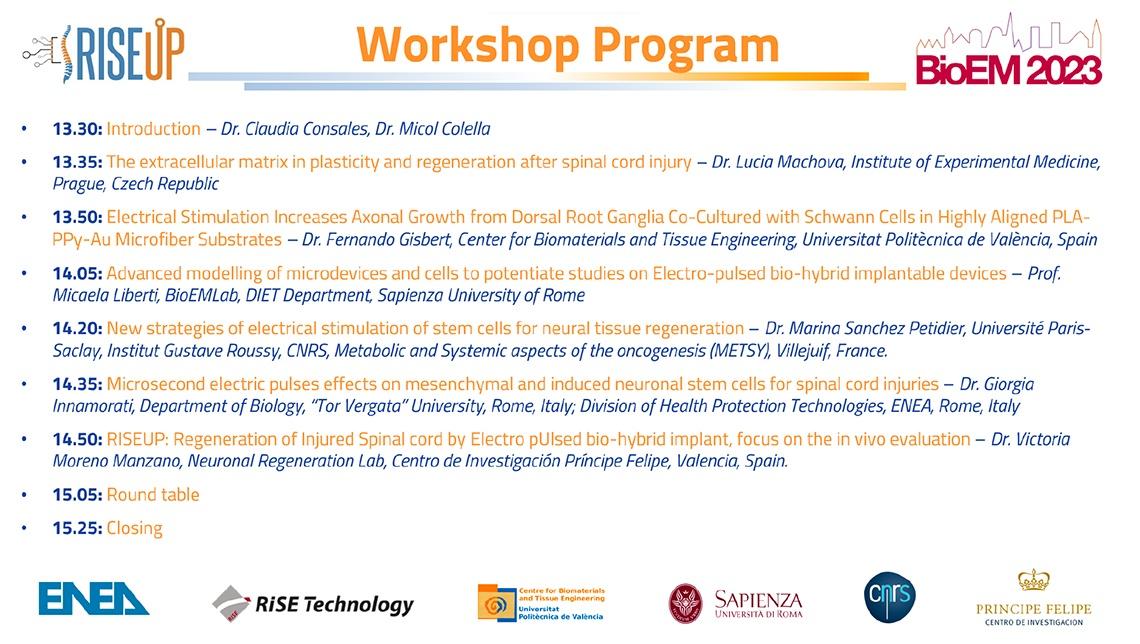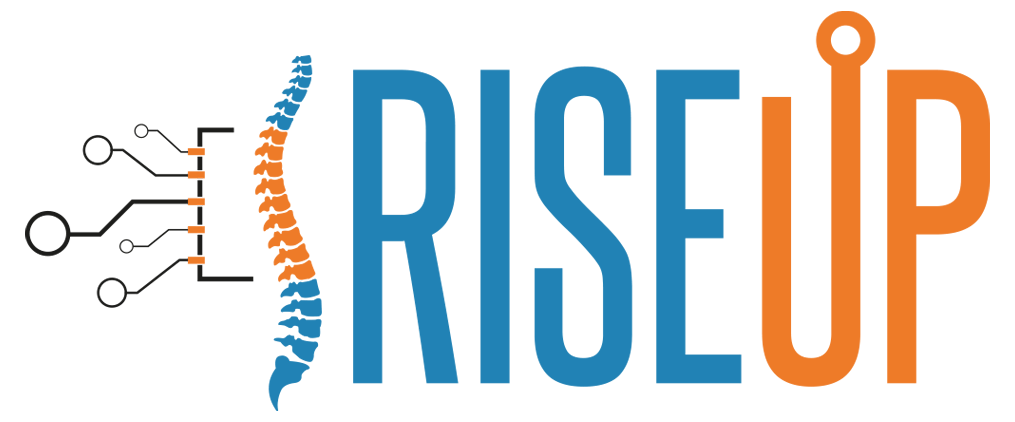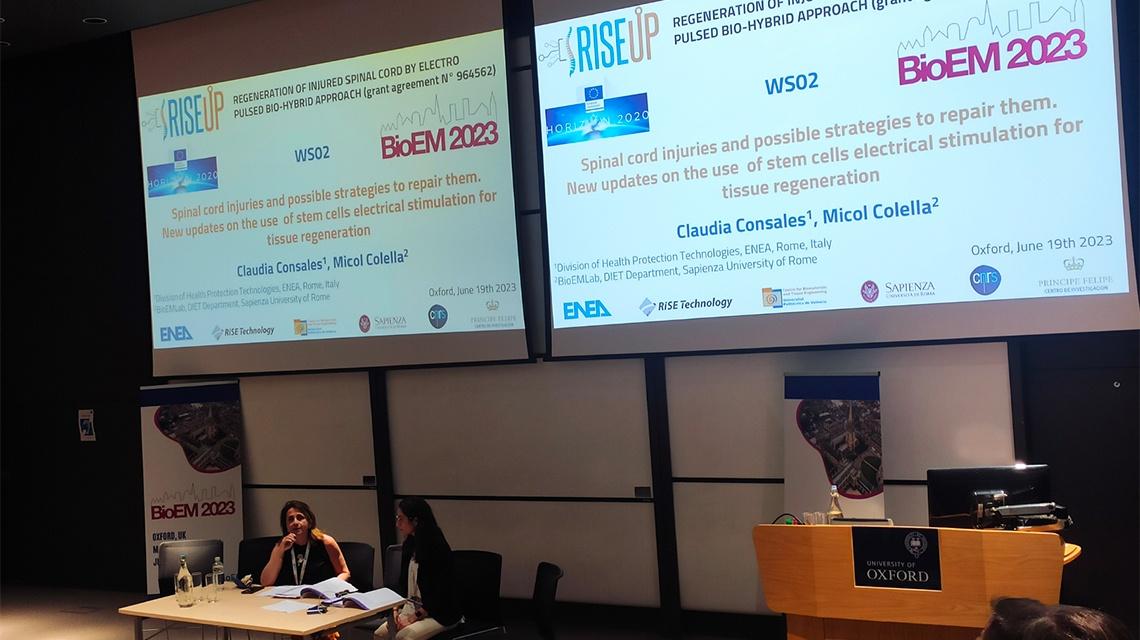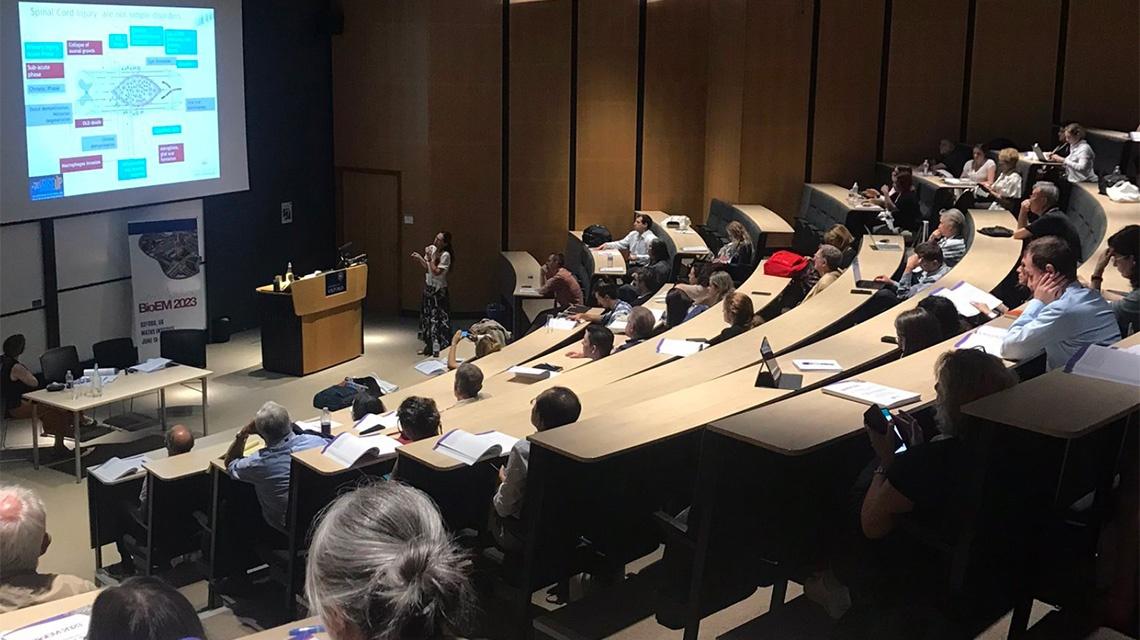NEWS & EVENTS
RISEUP Workshop at the BioEM2023 Conference
As part of the activities that the RISEUP consortium dedicates to dissemination, Dr. Claudia Consales, project coordinator, and Dr. Micol Colella, project assistant, organized a workshop at the 2nd Annual meeting of the BioEM society, held in vibrant Oxford from June 18th to June 23rd.
The workshop, entitled Spinal cord injuries and possible strategies to repair them: New updates on the use of stem cells electrical stimulation for tissue regeneration, aimed to provide insights on the existing new approached for SCI treatment and updates on the project results.
Six speakers, experts in the field of SCI and topics related to the RISEUP project were invited to give their lecture. Below is the workshop programme and some pictures taken during the session.

Dr. Consales and Dr. Colella introducing the workshop.
The workshop was attended by a numerous audience of more than scientists!
Dr. Lucia Machova-Urzikova
The first speaker was Dr. Lucia Machova-Urzikova from the Institute of Experimental Medicine, Prague, Czech Republic. She provided insights on the role of extracellular matrix in plasticity and regeneration after spinal cord injury.
Dr. Fernando Gisbert
The second speaker was Dr. Fernando Gisbert from the Center for Biomaterials and Tissue Engineering, Universitat Politècnica de València, Spain. Dr. Gisbert is one of the young scientists working in the RISEUP project and presented his results on the effect of electric stimulation on axonal growth from Dorsal Root Ganglia co-cultured with Schwann cells in highly aligned PLAPPy-Au microfiber substrates.
Prof. Micaela Liberti
The third speaker was Prof. Micaela Liberti from the BioEMLab, DIET Department, Sapienza University of Rome. Prof. Liberti coordinates the work carried out for WP5-Dosimetry of stimulations and neuro-functionalised model and she is a member of the RISEUP Steering Committee. Her talk focused on the latest advancements in numerical modeling for novel treatment techniques.
Dr. Marina Sanchez Petidier
The fourth speaker was Dr. Marina Sanchez Petidier from Université Paris-Saclay, Institut Gustave Roussy, CNRS, Metabolic and Systemic aspects of the oncogenesis (METSY), Villejuif, France. Dr. Sanchez Petidier is one of the young scientists involved in the RISEUP project, and she also serves as member of the Technical Committee. Her talk gave insights on the new strategies for neural tissue regeneration by electrical stimulation of stem cells.
Dr. Giorgia Innamorati
The fifth speaker was Giorgia Innamorati. Giorgia is a PhD student at Tor Vergata University of Rome, and she works in ENEA for the RISEUP project. Her talk focused on the effects of microsecond electric pulses on mesenchymal and induced neuronal stem cells in the frame of spinal cord injuries.
Dr. Victoria Moreno Manzano
The last speaker was Dr. Victoria Moreno Manzano from the Neuronal Regeneration Lab, Centro de Investigación Príncipe Felipe, Valencia, Spain. Dr. Moreno Manzano is the coordinator of the work carried out for WP7 - In vivo implantation of EBP device for acute SCI treatment and serves as a member of the RISEUP Steering Committee. Her talk focused on the in vivo results obtained during the first 2 years of the project.

















